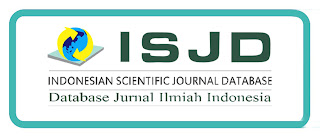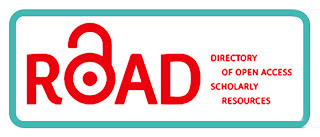Sistem Monitoring Lab Terintegrasi prodi Teknik Komputer berbasis Knowledge Management System
(1) Universitas Negeri Makassar, Institut Teknologi Sumatra
(2) Universitas Negeri Makassar
(3) Universitas Negeri Makassar
(4) Institut Teknologi Sumatra
(*) Corresponding Author
DOI: https://doi.org/10.26858/jessi.v1i1.13536
Abstract
Keywords
Full Text:
PDFReferences
A. Buchori, P. Setyosari, I. W. Dasna, and S. Ulfa, “Mobile Augmented Reality Media Design with Waterfall Model for Learning Geometry in College,” Int. J. Appl. Eng. Res., vol. 12, no. 13, pp. 3773–3780, 2017.
A. N. Afif, F. Noviyanto, S. Sunardi, S. A. Akbar, and E. Aribowo, “Integrated application for automatic schedule-based distribution and monitoring of irrigation by applying the waterfall model process,” Bull. Electr. Eng. Informatics, vol. 9, no. 1, pp. 420–426, 2020.
Z. Chen and X. Xu, “Study on construction of knowledge management system based on enhancing core competence of industrial clusters,” Int. J. Bus. Manag., vol. 5, no. 3, p. 217, 2010.
G. Santoro, D. Vrontis, A. Thrassou, and L. Dezi, “The Internet of Things: Building a knowledge management system for open innovation and knowledge management capacity,” Technol. Forecast. Soc. Change, vol. 136, pp. 347–354, 2018.
K. Iskandar, “Perancangan Knowledge Management System menggunakan Tools" Book Review": Studi Kasus pada Universitas Bina Nusantara,” ComTech Comput. Math. Eng. Appl., vol. 5, no. 2, pp. 1144–1154, 2014.
M. Loon, “Knowledge management practice system: Theorising from an international meta-standard,” J. Bus. Res., vol. 94, pp. 432–441, 2019.
M. A. Astorga-Vargas, B. L. Flores-Rios, G. Licea-Sandoval, and F. F. Gonzalez-Navarro, “Explicit and tacit knowledge conversion effects, in software engineering undergraduate students,” Knowl. Manag. Res. Pract., vol. 15, no. 3, pp. 336–345, 2017.
W. K. Sari and K. D. Tania, “Penerapan knowledge management system (kms) berbasis web studi kasus bagian teknisi dan jaringan fakultas ilmu komputer universitas sriwijaya,” J. Sist. Inf., vol. 6, no. 2, 2014.
Y.-M. Wang and Y.-C. Wang, “Determinants of firms’ knowledge management system implementation: An empirical study,” Comput. Human Behav., vol. 64, pp. 829–842, 2016.
Article Metrics
Abstract view : 247 times | PDF view : 35 timesRefbacks
- There are currently no refbacks.
Indexed by:



















Journal of Embedded Systems, Security and Intelligent Systems (JESSI) is licensed under a Creative Commons Attribution-ShareAlike 4.0 International License












 Email :
Email : 